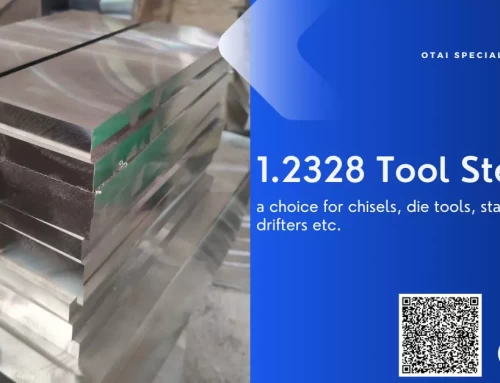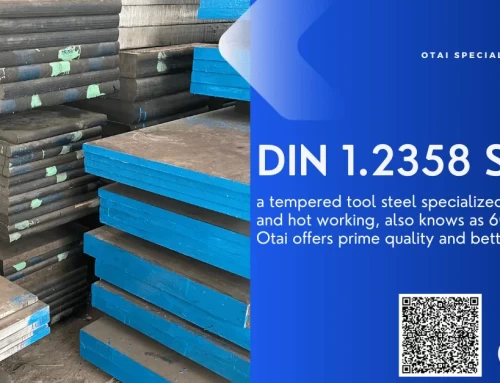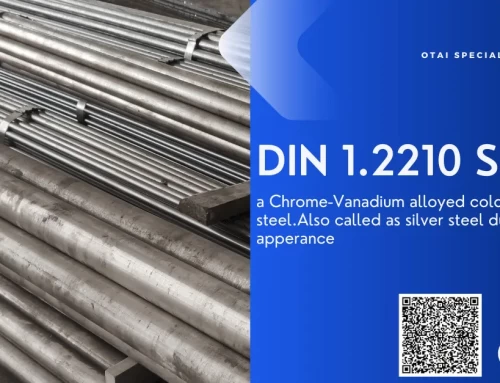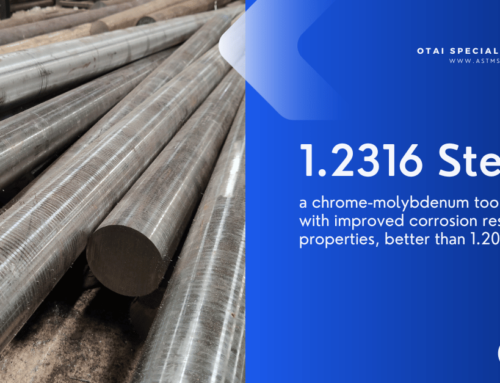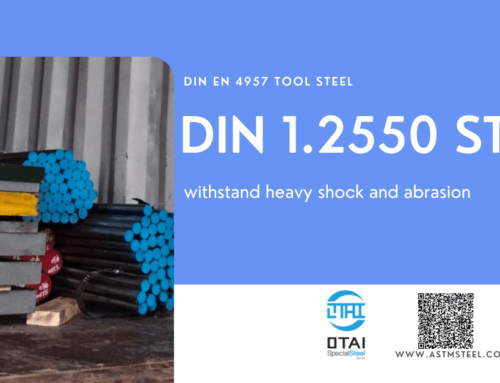1. What is DIN 1.2085 Material?
Steel material 1.2085, is a corrosion-resistant, martensitic stainless steel in ISO EN 4957 standard, packed with high chromium, making it a top choice for molds, especially those dealing with corrosive plastics. With the sulphur additive, steel 1.2085 is easy to machine and robust and resilient. It’s usually delivered quenched and tempered (Q+T) 280-325 HB.
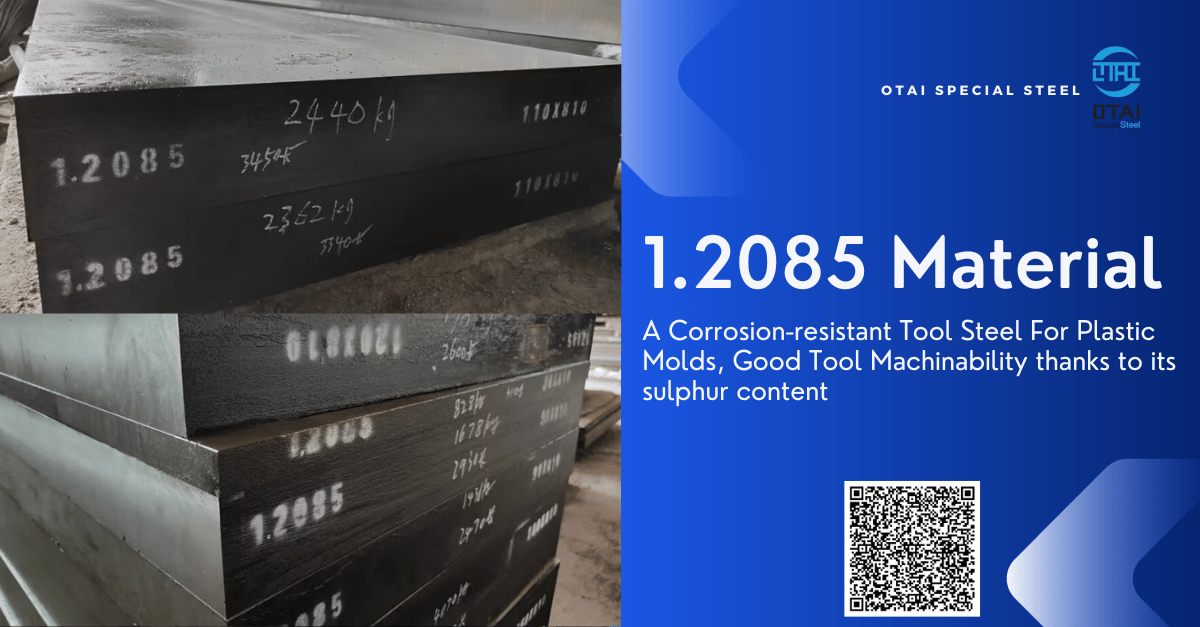
2. Supply Range of 1.2085 Steel Material
- Round Bar Size of 1.2085 Material: Φ16-500mm x random length
- Steel Plate Size of DIN 1.2085 Material: thickness 20-600mm x 300-800mm x random length
- Condition: Annealed or Q+T (preharden) condition
- Surface: Black surface or peeled / turned surface
3. Relevant 1.2085 Steel Specifications and Equivalent Steel Grades
Here’s a quick glance at the specifications and 1.2085 steel equivalents:
- DIN X33CrS16
- AISI 420FM
4. Chemical Composition of 1.2085 Steel Material
| C % | Si % | Mn % | P % | S % | Cr % | Ni % |
| 0,28 – 0,38 | max 1,00 | max 1,40 | max 0,030 | 0,050 – 0,100 | 15,00 – 17,00 | max 1,00 |
5. Properties of Steel 1.2085
- Modulus of elasticity [103 x N/mm2]: 212
- Density [g/cm3]: 7.65
- Thermal conductivity [W/m.K]: 18
- Electric resistivity [Ohm mm2/m]: 0.65
- Specific heat capacity[J/g.K]: 460
- Magnetisable: Yes
6. Forging of Material 1.2085
Forging materiale 2085 will go under temperature between 800-1100°C, and slow cooling to maintain its stellar properties.
7. Heat Treatment of 2085 Material
| Normalization | 790-810 | Cool in air |
| Soft annealing | 850-880 | Warm few hours (according to the size of object), mostly four hours are enough and cool slowly in the furnace |
| Annealing to lower tension | 600-650 | Warm 1 to 2 hours and cool slowly in the furnace |
| Hardening | 1000-1050 | Cool in oil or hot bath, the degree of tempering is set by hardness and toughness of instrument according to the tempering chart |
| Tempering | 100-500 |
8. Application of Steel 1.2085
- Mold Making: 1.2085 steel is a popular steel material when it comes to making molds, especially those that need to deal with corrosive plastics.
- Corrosion-Resistant Components: This steel is ideal to make components that need to resist corrosive and abrasive elements.
- Plastics Industry: 1.2085 is the champion in the plastics industry, being extensively used for components that are exposed to corrosive plastics. It’s the reliable buddy ensuring that the components can withstand the challenges thrown at them.
- Corrosion-Proof Clamping Frames of Molds: This steel 2085 is also very good to creat corrosion-proof clamping frames of molds.
- Components in Aggressive Environments: 1.2085 steel is the go-to material for components that operate in chemically aggressive environments.
Conclusion
Steel material 1.2085 is widely used in different industries, with its corrosion-resistant nature, toughness, and versatility in applications. Whether you’re exploring the potentials of this steel or are in the plastics industry, 1.2085 has a plethora to offer.
FAQs
- What makes steel 1.2085 corrosion-resistant? With high chromium content, 2085 steel has good corrosion resistent ability.
- Is 1.2085 steel material versatile in applications? Yes, the good properties make it suitable for a variety of applications which require durability, easy machinability and corrosion resistance.
- How smooth is the machining process of material 1.2085? The Sulphur additive in 1.2085 material ensures a smooth and efficient machining process.
- Is acquiring steel 1.2085 a costly affair? The price of steel 1.2085 varies from different suppliers or due to different quality, but considering the final applications, it’s very good option to purchase 2085 steel.
- How to retain the properties of materiale 2085 during forging? Maintaining proper temperature and ensuring slow cooling are key to retaining the properties of materiale 2085 during forging.

